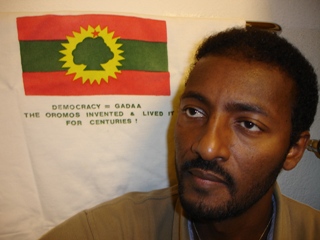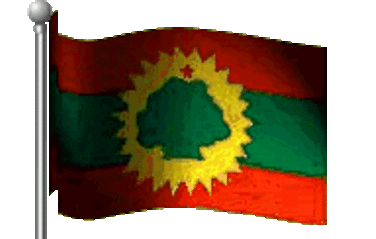Harvard Report: Grave human rights abuses in Gambella, Ethiopia
Fri. December 15, 2006
(December 14, 2006) Harvard School of Law - Human Rights Program
FULL REPORT (in pdf format)
HPR WEBSITE
SUMMARY
The man met the military in the forest. They asked him where he was going. He said, “To collect wood.” They made him sit down. They tied him, brought sticks, and beat him. He was also told to open his mouth, and a gun was placed inside his mouth. From there, they shot him. The bullet passed through. They left the body on the main road.... People were afraid to take the body. - Testimony from a 35-year old male in Pochalla, Gambella, Ethiopia, January 2006
Violence has become a way of life for civilians living in Ethiopia’s Gambella region. Ongoing tensions between the Ethiopian National Defense Forces (ENDF) and local Anuak rebels have caused hundreds of civilian casualties among both Anuak and highlander ethnic groups. In January 2006, the International Human Rights Clinic of Harvard Law School’s Human Rights Program (IHRC) traveled to Gambella to investigate the security situation of those civilians caught in the middle of this ongoing conflict. Throughout 2005 the Ethiopian military committed massive human rights violations against Anuak civilians, including extrajudicial killings, rapes, torture, and beatings. Anuak rebel groups, for their part, killed, maimed, and looted highlander civilians and villages.
The current conflict began in late 2003, when a group of armed rebels ambushed and mutilated eight government officials of highlander ethnicity just outside Gambella town. The attack triggered a three-day retaliatory massacre against Anuak civilians. Highlander civilians, together with members of the Ethiopian military, killed 424 Anuaks and destroyed more than 400 Anuak homes. In the year that followed, ENDF troops persecuted the entire Anuak population, and Anuak insurgent forces committed a bloody series of reprisals against some highlander communities. IHRC visited the area to follow up on the 2005 Human Rights Watch report, Targeting the Anuak: Human Rights Violations and Crimes Against Humanity in Ethiopia’s Gambella Region, which chronicled this 2003 attack and the ensuing violence in the region.
ENDF abuse of the Anuak remained rampant from December 2004 to January 2006. Anuak civilians faced the daily risk of being shot, raped, beaten, tortured, or harassed.
ENDF forces committed at least 46 extrajudicial killings; 14 rapes, gang rapes, or attempted rapes; 67 beatings (21 of which rose to the level of severe bodily injury or torture); 21 arbitrary arrests or detentions; and seven incidents of property destruction in this year-long period alone. The level of violence and ENDF abuse was much higher in those towns and villages suspected of giving more support to rebel groups, including Abobo, Pinyudo, and the surrounding smaller villages. ENDF patrols particularly targeted men between the ages of 18 and 30 and Anuak community leaders. Because of frequent ENDF attacks on the outskirts of town, Anuak civilians feared tending farms, collecting wood from the forest, traveling to and from school, and gathering water from the river or watering pump.
Highlander civilians also suffered from the violence in Gambella. The increasingly organized and militarized Anuak insurgent force continually threatened their life, personal safety and sustenance. Between March and October 2004, armed Anuak groups killed at least 35 highlanders in attacks on highlander villages along the road between Gambella and Abobo. Armed Anuaks shot villagers, slit their throats, or burned them alive in their huts. While Anuak rebels demonstrated somewhat greater restraint toward civilians in later attacks between October 2004 and December 2005, grave human rights abuses continued and rebel fighters killed several highlander civilians in the course of two high profile raids on Gambella town and Abobo in 2005. There were also multiple reports of a January 2006 massacre of 50 to 60 highlander civilians.
To its credit, the Ethiopian military took a less repressive approach in communities and villages no longer considered to be directly supporting rebel activities, namely in Gambella town, Illea, and Itang. Anuak civilians in these towns and villages noted a change on the ground with new troop regiments behaving “better” than the previous ones. Nonetheless, several incidents of abuse did occur, perpetuating the climate of fear born during the first atrocities in Gambella. Civilians constantly feared ENDF soldiers would return to the large-scale attacks of the past. On several occasions, soldiers expressly threatene to do just that.
The rebel groups also shifted away from more general attacks on civilians to target primarily Ethiopian military and government officials. Several different sources said rebels operated from a list of targets. Direct and more prolonged military engagements between rebel fighters and the Ethiopian military, large-scale ENDF attacks on refugee camps and suspected rebel bases in southern Sudan, and a substantial military build-up in the region by the Ethiopian army, suggested that the long-standing low-level tensions between Anuak insurgents and the Ethiopian military is becoming an outright armed conflict. More recently, sources in the region reported an ENDF offensive against Anuaks in refugee camps in Pochalla, Sudan, in April 2006.
The severe violations committed against Gambella’s civilian population approach the level of war crimes under international humanitarian law (IHL). Common Article 3 of the Geneva Conventions applies to non-international armed conflicts, a status that applies here given the escalation of the conflict. Both government forces and insurgent groups are required, therefore, to abide by the protections afforded by Common Article 3, which inter alia prohibits direct attacks against civilians and requires the humane treatment of all persons in custody. Despite this rule, both sides have repeatedly attacked civilians as a tactic in the conflict.
The Ethiopian government has also breached its international human rights obligations. ENDF-perpetrated extrajudicial killings, rapes, beatings, torture, and cruel treatment of Anuaks have collectively formed the type of larger systematic abuse that is indicative of crimes against humanity. Ethiopia has also violated its obligations under several international human rights treaties to which it is party, including its responsibility to guarantee both Anuak and highlander civilians’ due process and rights to life, liberty, and security of person. Finally, the beating, rape, harassment and brutal and lengthy interrogation of Anuak civilians by ENDF forces constitute violations of the customary international law prohibitions on inhumane treatment and torture.
This report is based on a January 2006 two-week research mission to Gambella region, supplemented by extensive pre- and post-mission research and ongoing communication with sources in Gambella. During its visit, the IHRC traveled to Gambella town, Pinyudo and Abobo as well as to 11 smaller villages and three refugee camps. In total, it conducted 87 comprehensive interviews with both Anuak and highlander civilians and international aid workers in the region. The identity of interview subjects has been withheld to protect the security of victims and witnesses.
FULL REPORT (in pdf format)
HPR WEBSITE
Source: East Africa



0 Comments:
Post a Comment
<< Home